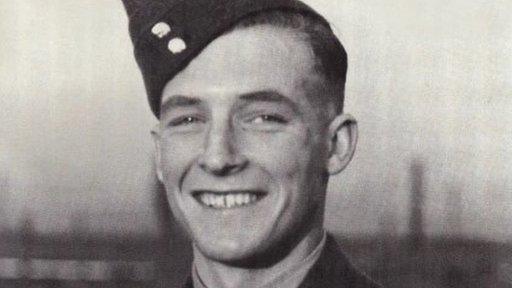Bristol's little-known role in US civil rights movement
- Published
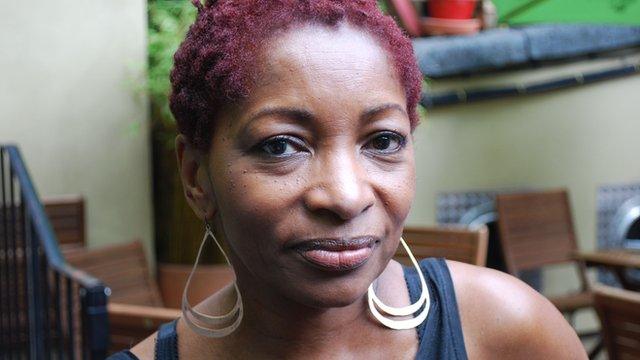
Bonnie Greer's GI father described his time in the UK as the "first decent experience of white people" he had ever had
The American-British writer Bonnie Greer is calling for greater recognition of Bristol's little-known role in the US civil rights movement.
Black GIs based in Bristol during World War Two were housed in segregated units but many experienced a new-found freedom in the city while off duty.
They were able to mix with white women and socialise, which would have led to lynch mob violence in some US states.
Ms Greer said her father, Ben, and other young GIs "had seen another world" and had taken a thirst for similar freedoms back home with them.
It had given them a "kind of humanity and brief equality".
She said the city had become a "seedbed" for the civil rights movement in the US and is now calling for a better acknowledgement of this in school curriculums in the UK and the US.
The tolerance generally shown in the UK inspired many of the African Americans to fight oppression on their return to the US.
Ms Greer, filming for a BBC West documentary which explores the issue, said the contrast had a significant impact.
"For the first time in their lives, they could be just young soldiers, out on the town, doing their own thing," she said.
"And they could do the one thing they would have been killed for back home - hanging out with white women."
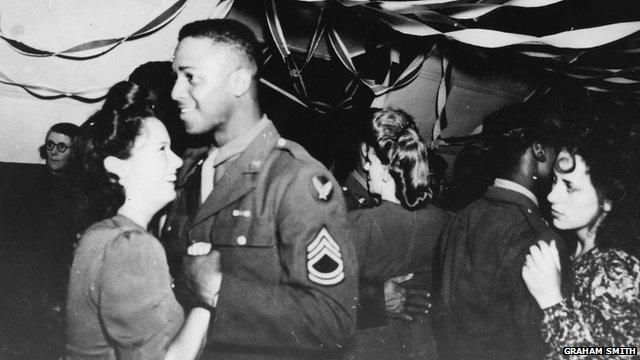
The African American GIs livened up the city's wartime nightlife introducing exciting new dances such as the jitterbug
Neil Wynn, Emeritus Professor of 20th Century American History at the University of Gloucestershire, said: "It was a surprise for many African Americans to be treated as equals.
"That for many of them was an amazing experience and one which was going to remain with them for the rest of their lives."
Ms Greer said what happened in Bristol should be highlighted alongside other more publicised aspects of the city's past.
"The slave trade played a huge role in Bristol's history but I think that the experience of the GIs in the war was also important and the story should be told.
"Both sides of Bristol should be taught," she said.
"That's education - that's how knowledge and intelligence grows."
Her Chicago-born late father, Ben Greer, was based in England as a GI before taking part in the D-Day landings.
He described his time in the UK to her as the "first decent experience of white people I'd ever had".
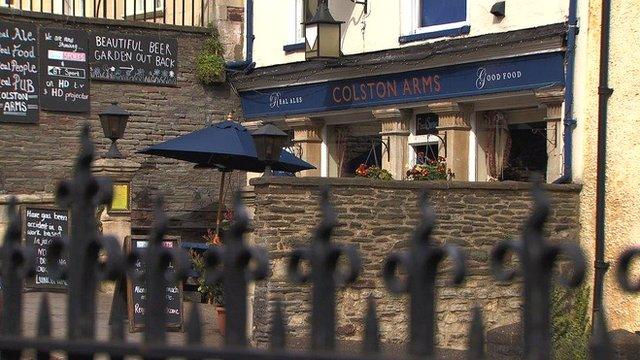
The Colston Arms in Bristol refused to accept that black and white soldiers should not be served together
The American authorities met local resistance to their attempts to introduce segregation beyond their military units, camps and social clubs.
The Colston Arms in Bristol, for example, refused to accept that black and white soldiers should not be served together.
Ms Greer said: "There should be a blue plaque outside the pub - it was remarkable what happened there."
The African American GIs livened up the city's wartime nightlife introducing exciting new dances such as the jitterbug and jazz music.
But their popularity with the local girls led to tension and clashes with the white American GIs in Bristol - culminating in a riot in the Park Street area in 1944.
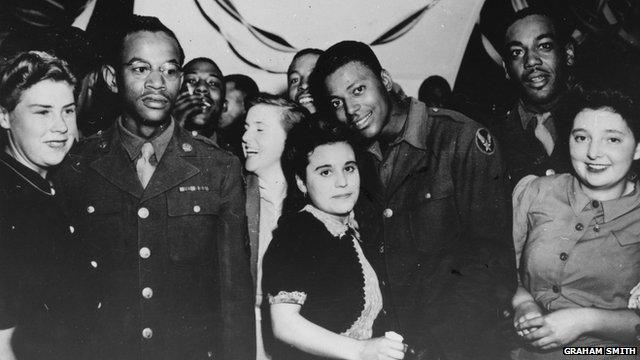
With interracial relationships and marriage illegal in many US states, black soldiers returning to the US had to leave their sweethearts and babies behind
Details of the confrontation between hundreds of soldiers and military police were downplayed in the press under WW2 censorship.
At the end of the war, many white GI brides emigrated to America but black soldiers returning to the US had to leave their sweethearts and children behind as interracial relationships and marriage were illegal in many states.
VE Day: The First Days of Peace: Race Relations will be broadcast on BBC One in the West on Monday 11 May at 19:30 BST and on the BBC iPlayer.
- Published10 May 2015
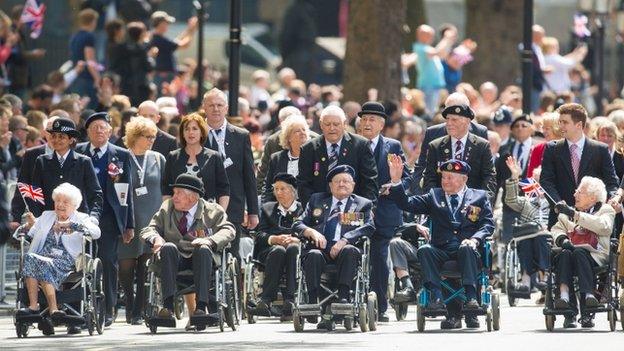
- Published10 May 2015
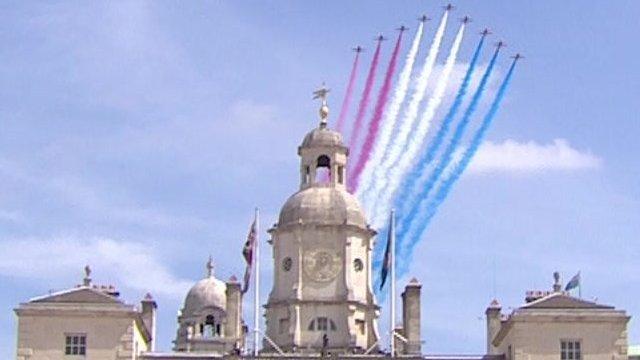
- Published8 May 2015
